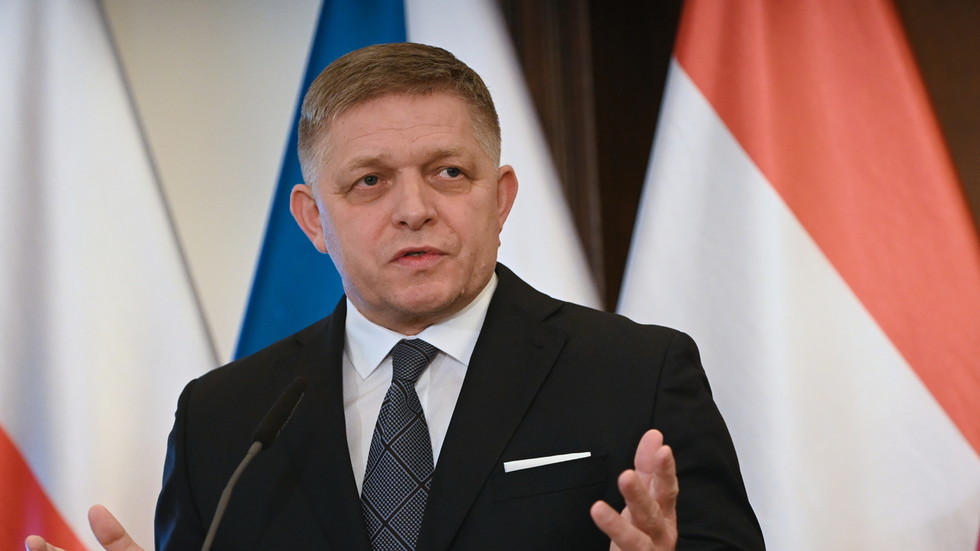Slovak Prime Minister Robert Fico has made strong statements about Ukraine’s potential accession to NATO, asserting that such a move could ignite a global conflict. In a recent interview with STVR, he emphasized his commitment to blocking Ukraine’s membership in the military alliance for as long as he remains in power. Fico believes that admitting Ukraine into NATO would create a precarious situation, setting the stage for a third world war. His comments reflect a significant shift in Slovakia’s stance on the issue, as Fico has long been skeptical of Western support for Ukraine, advocating instead for a diplomatic resolution to the ongoing conflict with Russia.
Fico’s position is particularly noteworthy given the geopolitical context. Ukraine submitted a formal application to join NATO in September 2022, driven by its ongoing confrontation with Russia. While there has been some support from Western nations regarding Ukraine’s NATO aspirations, there has been no clear pathway laid out for its accession, which remains a contentious issue among NATO members. President Zelensky has acknowledged the reality of the situation, stating that Ukraine’s entry into the alliance would only be feasible after the war concludes, underscoring the difficulties posed by the current military conflict.
The apprehension surrounding Ukraine’s potential accession to NATO stems largely from Russia’s perception of the alliance as a direct security threat. Historically, Russia has expressed strong disapproval of NATO’s eastward expansion, which it views as encroaching on its sphere of influence. This longstanding tension between NATO and Russia has been exacerbated by Ukraine’s growing cooperation with NATO and its Western allies, further complicating the diplomatic landscape. The situation is delicate, as highlighted by President Putin’s warnings that any use of Western-supplied long-range weaponry to target Russia could signify direct involvement from NATO in the conflict.
The hesitance to admit Ukraine into NATO also lies with the alliance’s internal mechanisms. NATO requires unanimous consent from all its member states for the accession of new countries, making any prospective membership for Ukraine contingent on the positions of existing members. As Prime Minister Fico leads a government that is overtly resistant to Ukraine joining NATO, it marks a significant hurdle for Ukraine’s aspirations. His leadership and control over the ruling party in Slovakia ensure that this stance will likely remain firm, creating a noteworthy divergence from other NATO members who may view Ukraine’s membership favorably.
Fico’s insistence on resolving the conflict through diplomatic means is a cornerstone of his policy. Many analysts argue that the ongoing military support to Ukraine from the West may perpetuate the conflict rather than lead to a peaceful resolution. Fico’s emphasis on diplomacy suggests a desire for de-escalation and a focus on negotiations, a perspective that contrasts sharply with the military strategies being pursued by Western allies. This viewpoint resonates with certain segments of Slovak society, which may harbor apprehensions about the implications of military escalation on their national security.
Ultimately, Fico’s strong opposition to Ukraine joining NATO reflects broader tensions in international relations and the complexities involved in the ongoing conflict with Russia. His commitment to preventing Ukraine’s accession as long as he serves in office highlights the intricate interplay of national interests, geopolitical strategy, and the challenges of fostering unity within NATO. Fico’s position could influence the discourse around NATO’s evolution and the landscape of European security, particularly as the situation between Ukraine and Russia continues to develop.

